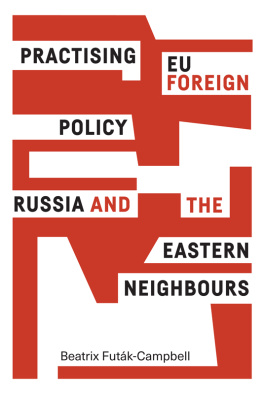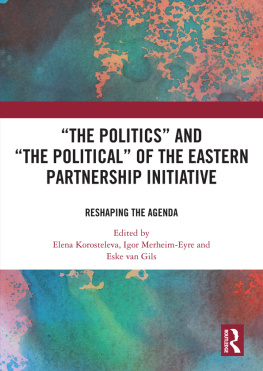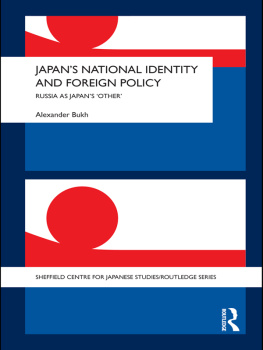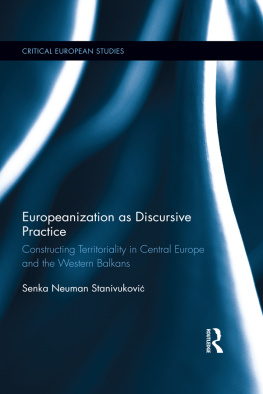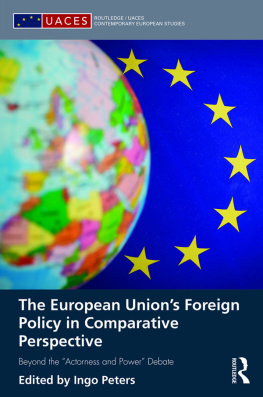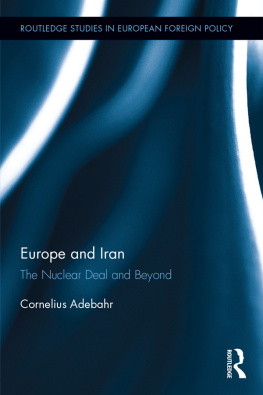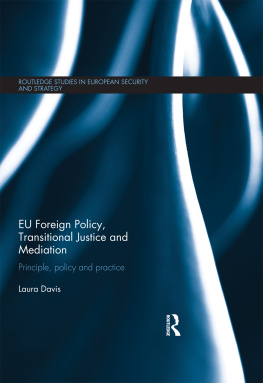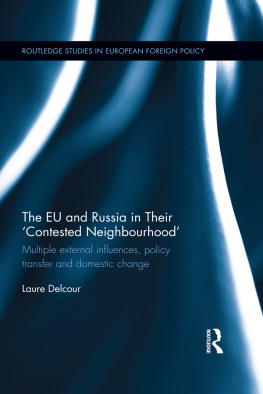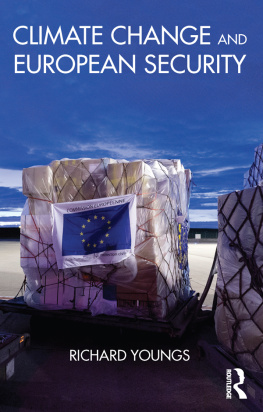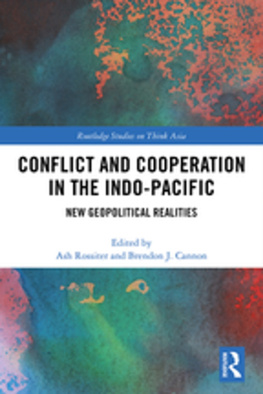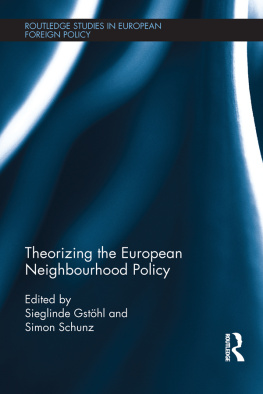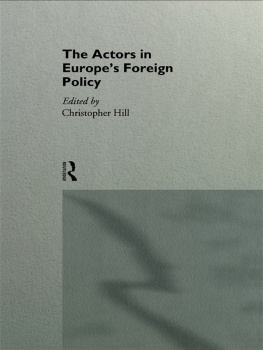Copyright Beatrix Futk-Campbell 2018
The right of Beatrix Futk-Campbell to be identified as the author of this work has been asserted by her in accordance with the Copyright, Designs and Patents Act 1988.
Published by Manchester University Press
Altrincham Street, Manchester M1 7JA
www.manchesteruniversitypress.co.uk
British Library Cataloguing-in-Publication Data
A catalogue record for this book is available from the British Library
ISBN978 0 7190 9589 4hardback
First published 2018
The publisher has no responsibility for the persistence or accuracy of URLs for any external or third-party internet websites referred to in this book, and does not guarantee that any content on such websites is, or will remain, accurate or appropriate.
Typeset
by Toppan Best-set Premedia Limited
Studying practitioners is not new in International Relations (IR). The field of IR has always focused on practitioners, especially for information and data. However, the arrival of the practice turn changed the focus, and made the practitioners the focus of analysis, rather than just mere information providers. This so-called practice turn originates from scholarly works that were done in different disciplines such as philosophy, sociology, and social psychology for decades now. They have inspired many IR scholars, but a more focused discussion on how to introduce practice theory to IR has only been done more recently. The literature on this topic is ever growing, which is a testament to our changing analytical interest in practitioners as well as the persuasive nature of the theory.
) already drew attention to this, and critiqued the lack of application of discursive approaches among practice theory scholars.
My training in conversation analysis, discursive psychology, and ethnomethodology, plus my practitioner background led me to engage in this limited methodological discussion, and to develop a conceptual model that aims to bring those who merely focus on conduct and behaviour with those schools who focus on discourse and linguistic approaches. EU foreign policy and EU practitioners seemed an ideal option, and focusing on Russia and the other eastern neighbours is equally apt, considering the developments in Russian foreign policy.
This book is the work of years of pondering about the EU as a foreign policy actor that I began at the Europa Institute in the Edinburgh Law School and continued at the University of St Andrews. During my research and since, a number of other scholars were kind enough to read and comment on my work. Among them I am most indebted to Rick Fawn, Karin Fierke, as well as Ben Rosamond and John Anderson who provided very engaging and intellectually stimulating discussions throughout the process. I am also grateful to Sanjoy Banerjee who generously encouraged me and gave comments on the analytical chapters, as did Sue Widdicombe and Clair Haggett as well as Eric Laurier with whom I established the Scottish Ethnomethodology, Discourse, Interaction and Talk (SEDIT) research group (www.sedit.org.uk) at the University of Edinburgh. SEDIT has been a turning point for my engagement in contemporary discourse analysis. Besides SEDIT, Alexa Hepburn and Jonathan Potter have been instrumental in my methodological training. They provided a tremendous source of intellectual and personal inspiration. I learned a great deal from them, and they will have a deep and lasting influence on my thinking as well as on my own professional attitude. They are truly inspiring. I am also most indebted to Celia Kitzinger, among many things, for training me in conversation analysis. Other members of the academic community who generously helped along the way include, with apologies to those unintentionally left out: Tony Lang, Nick Rengger, Andy Williams, Michael J. Boyle, Michelle Burgis-Kasthala, Jeffrey Murer, Torsten Michel, Wojtek Ostrowski (and others at the School of IR in St Andrews), Lene Hansen, Antje Wiener, Thomas Christiansen, Anne Farbe, Imogen Sudbery, Emmanuel Schon-Quinlivan, Thomas Moore, Annika Bergman Rosamond, Luke March, Andrew Farrer, Elizabeth Stokoe, Sally Wiggins, Bregje de Kok, all colleagues and PhD students, whom I worked with while I was a Marie Curie Research Fellow at PF7 Project Power and Region in a Multipolar Order (PRIMO), and my colleagues at the IR research group at Leiden University. Many thanks to each of them for their invaluable intellectual and often personal contributions, and to my anonymous reviewers.
Tony Mason at Manchester University Press was also instrumental in initiating turning this project into a book. I am indebted to him for his patience. I am also grateful to my research assistants Christian Schwieter, Tuure Niemi, and Joe Cotton who not only helped with copy-editing but were also instrumental in clarifying my arguments and pushing me to adapt my often highly technical writing style.
Without the generous Economic and Social Research Council (ESRC) scholarship, along with the various travel, training, and workshop grants from University of York Department of Sociology Bursary, Professional and Personal Development Fund University of St Andrews, Centre for Russian, Central and East European Studies (CRCEES) Fellowship and Russell Trust Award, University of St Andrews, my research would have not been possible. I am very appreciative of this support.
Finally, I would like to acknowledge and thank all those practitioners who participated and made this project possible. I am most indebted to Robert Cooper who was instrumental in the data collection process.
Further thanks have to go to Pat and Jane Harkin, Sabine Rolle, Pete Davis, Fr Hugh Purcell, Jane Feinmann, Naomi Hunter, Elena Pollot, and Andrew Thomson whose friendship and support meant a great amount to me, and still does.
My profoundest gratitude goes to my parents, and to my husband Craig, who not only introduced me to poststructuralist philosophy and social psychology but has been a wonderful partner for many years. For his love, support, and stimulating chats I am most grateful. I dedicate this book to him, and to our firstborn Xa.

